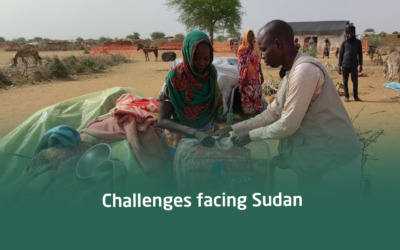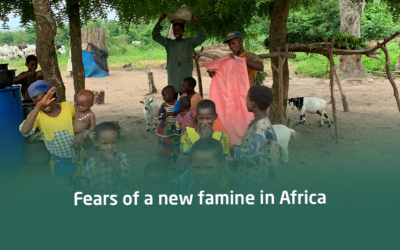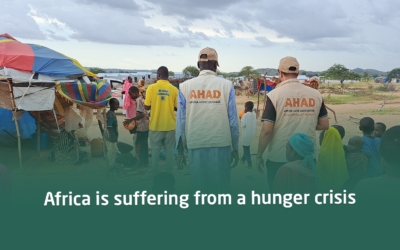Worsening hunger grips West and Central Africa
Hunger and food security are among the most pressing challenges facing west and Central Africa at the moment. In addition to traditional challenges such as political and economic crises, the region is currently experiencing a significant aggravation of hunger and food insecurity due to multiple factors ranging from climate changes and armed conflicts to economic fluctuations and demographic composition.
The worsening hunger and food insecurity in West and Central Africa are major challenges at the moment, and their negative impacts are widening and multiplying due to multiple and cumulative factors. This region is one of the most impoverished in the world and is experiencing devastating effects that make it difficult for it to cope with crises.
Causes of exacerbation of hunger
Climatic changes and extreme weather conditions
Severe dehydration
Drought is one of the most significant factors contributing to the aggravation of hunger in West and Central Africa. When rains are interrupted for long periods, groundwater levels recede and rivers dry up, which leads to a severe shortage of agricultural crops. Much of the region’s population depends on agriculture as its main source of food and income, and when crops fail, their food security is directly affected. In addition, drought is reducing pastures, exposing livestock to the risks of starvation and death, and making it more difficult to provide food.
Floods and hurricanes
Floods and hurricanes cause huge crop losses and destroy agricultural infrastructure. Floods flood agricultural lands with water, damaging crops ready for harvest and damaging the soil, while hurricanes destroy agricultural facilities and equipment necessary for agriculture. The destruction of infrastructure such as roads and bridges also hampers the transportation of food and supplies, leading to food shortages and rising prices, and making it difficult for poor families to secure their basic needs.
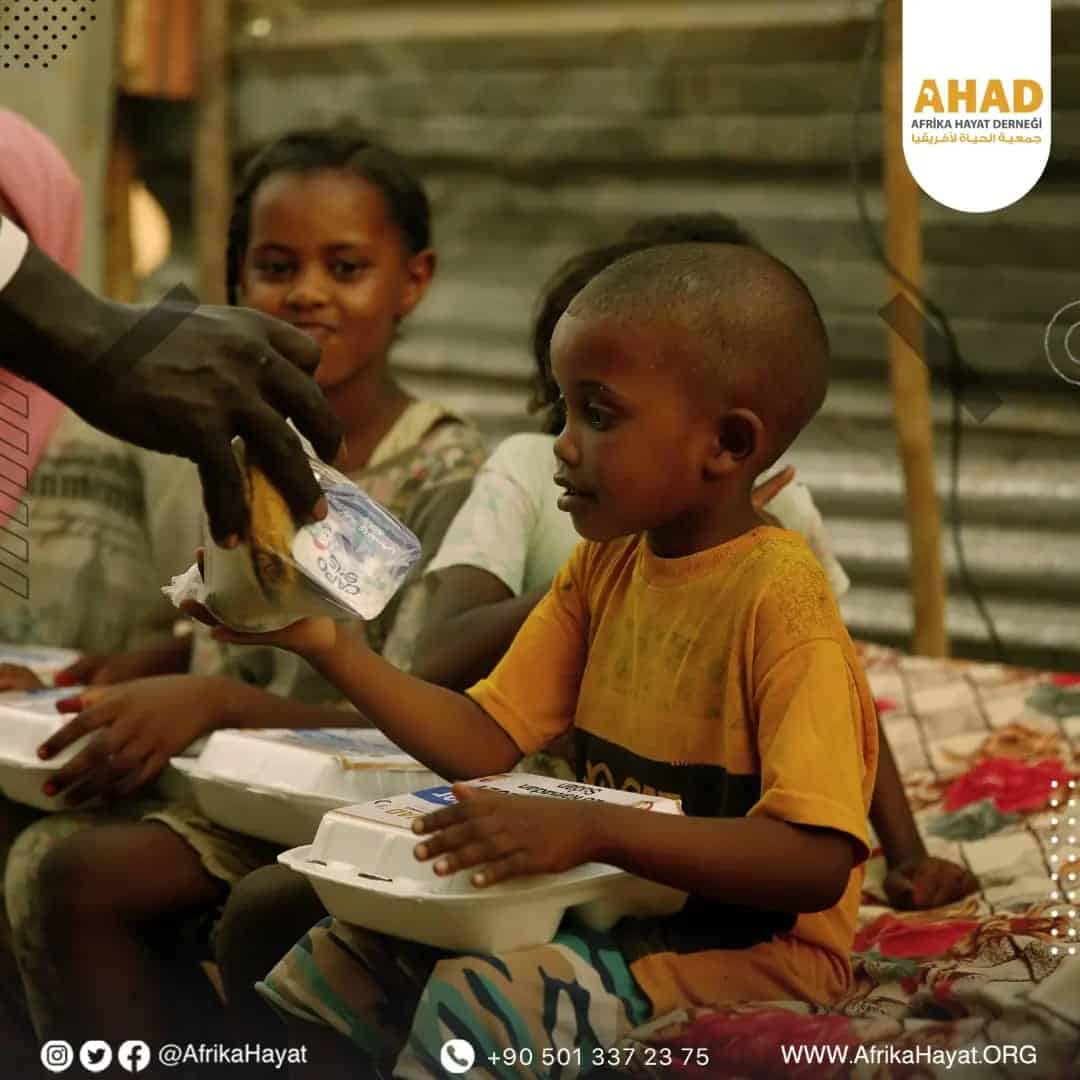
Armed conflicts
Civil wars and tribal conflicts
Civil wars and tribal conflicts lead to the displacement of the population, the destruction of infrastructure and civil, disrupt agricultural production. These conflicts cause the displacement of large numbers of people from their areas, which reduces the number of labor in agriculture and reduces food production. In addition, conflicts lead to the destruction of infrastructure such as roads, bridges, and warehouses, hindering the transportation of food and making it more difficult for humanitarian aid to arrive.
Attacks on farmers and agricultural workers
Frequent attacks on farmers and agricultural workers hinder agricultural operations and reduce production. In many conflict-affected areas, farmers are being attacked by armed groups, forcing them to leave their land and take refuge in safer areas. This situation leads to a decline in agricultural production, increased levels of hunger and food insecurity.
Economic fluctuations
Rising food prices
Inflation and rising food prices make it difficult for poor families to access food. In many West and Central African countries, high inflation is causing an increase in the prices of basic foodstuffs such as cereals, vegetables, and oils. This increase makes it difficult for poor families to buy enough food, which increases the rates of hunger and malnutrition, exacerbates economic and social conditions.
Currency deterioration
The decline in monetary value affects the purchasing power of citizens. The deterioration of the local currency leads to a rise in prices for imported goods, including food, which increases the cost of living. In addition, it increases the cost of agricultural production, which leads to higher prices for domestic agricultural products. This situation exacerbates food security problems and increases poverty and hunger rates in rural and urban areas.
Demographic challenges
Rapid population growth
Rapid population growth puts additional pressure on limited food resources. In West and Central Africa, the population growth rate is significantly increasing, which leads to an increase in demand for food, water, and other natural resources. This pressure leads to depletion of limited resources and increased competition for them, complicating efforts to provide adequate food for the entire population. Rapid population growth also requires improved health and education services and infrastructure, which puts additional pressure on governments and available resources.
The aggravation of hunger in West and Central Africa is the result of a complex interaction of climatic factors, armed conflicts, economic fluctuations, demographic challenges. To meet these challenges, the international community and local governments should intensify efforts to provide humanitarian assistance, strengthen food security through the development of sustainable agriculture, build local capacities to cope with climate change, work to resolve armed conflicts in peaceful ways, and improve the economic and social conditions of the population. Achieving these goals will require international cooperation and coordinated efforts to ensure a better future for the people of the region.
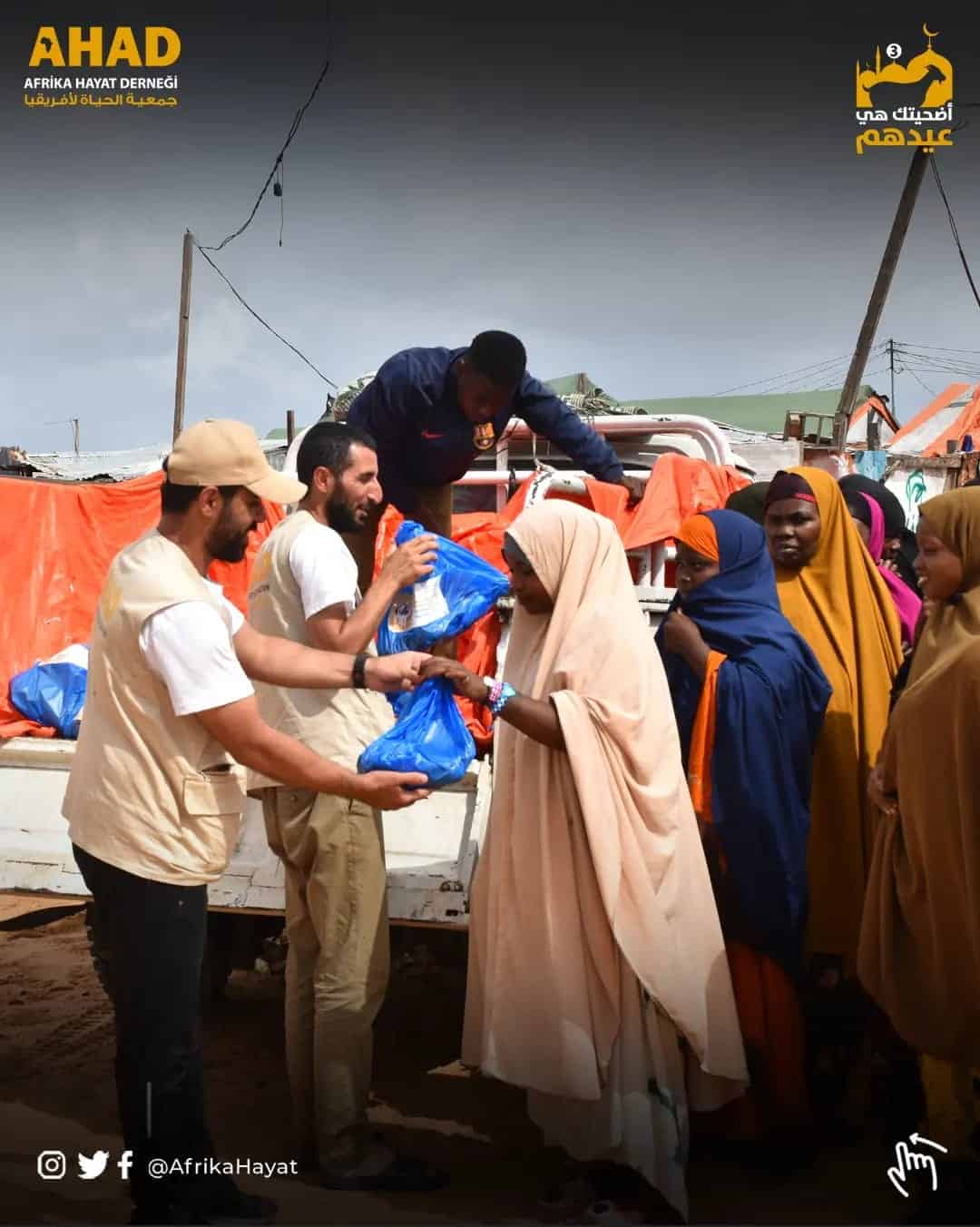
Consequences and negative effects of worsening hunger
High mortality rates due to hunger and undernutrition
Hunger and undernutrition are two of the biggest threats to the lives of millions of people in West and Central Africa. When individuals, especially children, do not receive adequate and necessary food for their development, they run the risk of stunting and severe malnutrition, which leads to a weakened immune system and an increased susceptibility to disease. Nutritional deficiencies can lead to chronic health problems such as anemia, muscle weakness, delayed mental and physical development. Malnourished children are also more likely to die from infectious diseases such as diarrhea and pneumonia, which significantly raises mortality rates in these areas.
Deterioration of health status
Lack of nutrition leads to a deterioration in the general state of health of individuals, which increases the spread of diseases and epidemics. When the body is deprived of essential nutrients, it becomes weak and unable to resist diseases. This leads to an increase in the incidence of chronic and Infectious Diseases. For example, a lack of essential vitamins and minerals can lead to conditions such as vitamin A deficiency, which causes night blindness and an increased risk of death, and iron deficiency, which leads to anemia. Poor nutrition can also hinder recovery from illnesses and wounds, increasing the period of illness and recovery. The spread of diseases in these areas can lead to large-scale epidemics, weakening local health systems and increasing pressure on limited health resources.
Psychological and social effects
Hunger and food insecurity have profound psychological and social impacts on individuals and communities. Chronic hunger can lead to feelings of hopelessness, anxiety and frustration, which affects the psychological health of individuals. These psychological stresses can lead to an increase in cases of depression, anxiety and other mental health disorders. At the social level, hunger leads to tensions and conflicts within and between communities. When resources are scarce, competition for food, water and other resources increases, which can lead to conflicts within families and communities. Hunger can also lead to an increase in crime and violence as individuals resort to illegal means to secure their basic needs.
The worsening hunger and undernutrition in West and Central Africa have wide-ranging negative repercussions and effects that include high mortality rates, a deteriorating health situation, and serious psychological and social impacts. Addressing these challenges requires integrated efforts from the international community and local governments to strengthen food security and improve the living and health conditions of the population. Improving food and health conditions can contribute to social stability and sustainable development in the region.
AHAD’s efforts in promoting quality of life and sustainable development in central and West Africa
AHAD works in the heart of the African continent, with a special focus on the countries of Central and West Africa, with the aim of improving the quality of life of the poor and disadvantaged in those regions. AHAD focuses on multiple projects covering the fields of health, education, water, and economic development, with the aim of achieving inclusive and sustainable development.
Ahad is aware of the unique nature of the communities it works with, which leads it to choose strategies that match the skills and abilities of the residents of these communities. AHAD seeks to enhance their participation and empowerment, to ensure that they have an effective role in building their communities. By focusing on leveraging local capabilities, AHAD enhances the impact of its projects and ensures their long-term sustainability.
AHAD focuses on improving health services and providing basic health care. The organization is working on the construction and equipping of health facilities, the provision of necessary medicines, and the organization of health awareness campaigns. These efforts are aimed at reducing mortality and morbidity rates, especially among children and women.
AHAD considers education a fundamental pillar of sustainable development. The organization is engaged in building and equipping schools, providing educational materials, training teachers. AHAD strives to improve the quality of education and ensure that children have equal access to educational opportunities, enabling them to build a better future.
AHAD is working on projects to provide clean water and sanitation. These projects include drilling wells, building water distribution systems, and sensitizing communities to the importance of Hygiene and public health. These efforts contribute to improving public health and reducing waterborne diseases.
AHAD seeks to empower individuals economically by offering vocational training, supporting small businesses, and providing job opportunities. These efforts are aimed at strengthening the local economy and creating productive and sustainable communities.
Ahad relies on the motto “because it’s worth living”, and works hard to realize this motto in every project she does. The organization aims to make a tangible positive impact in the life of the communities it serves, by providing basic needs, improving the quality of education, and empowering individuals to participate effectively in building their communities.
Through its diverse initiatives, AHAD seeks to bring about positive and sustainable change in the lives of individuals and communities in central and West Africa. Its comprehensive strategies based on local participation ensure that its projects are effective and sustainable, which contributes to achieving comprehensive development and improving the quality of life in these areas.
You can visit the AHAD website to find out more about the projects it offers
ALSO READ
WHAT THE FOOD BASKET CONTAINS IN AHAD
Join us in our message


